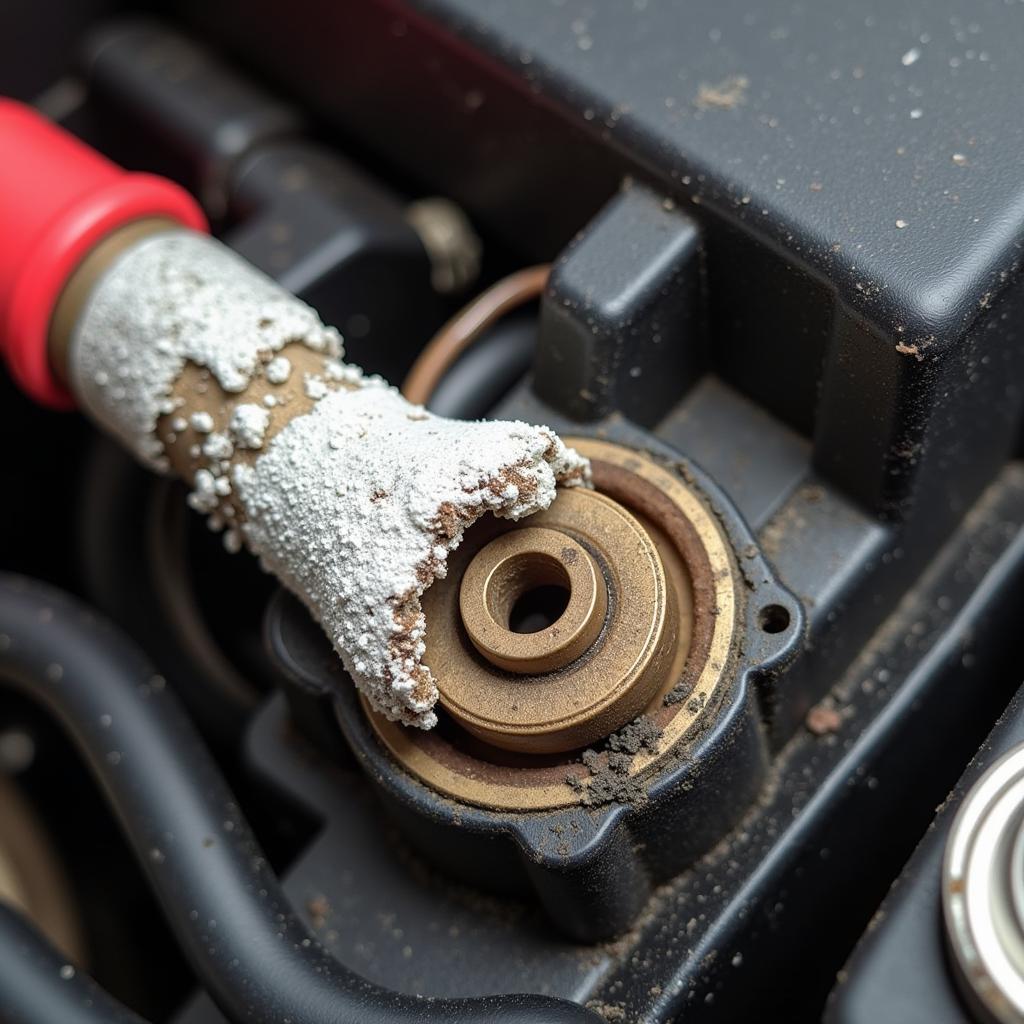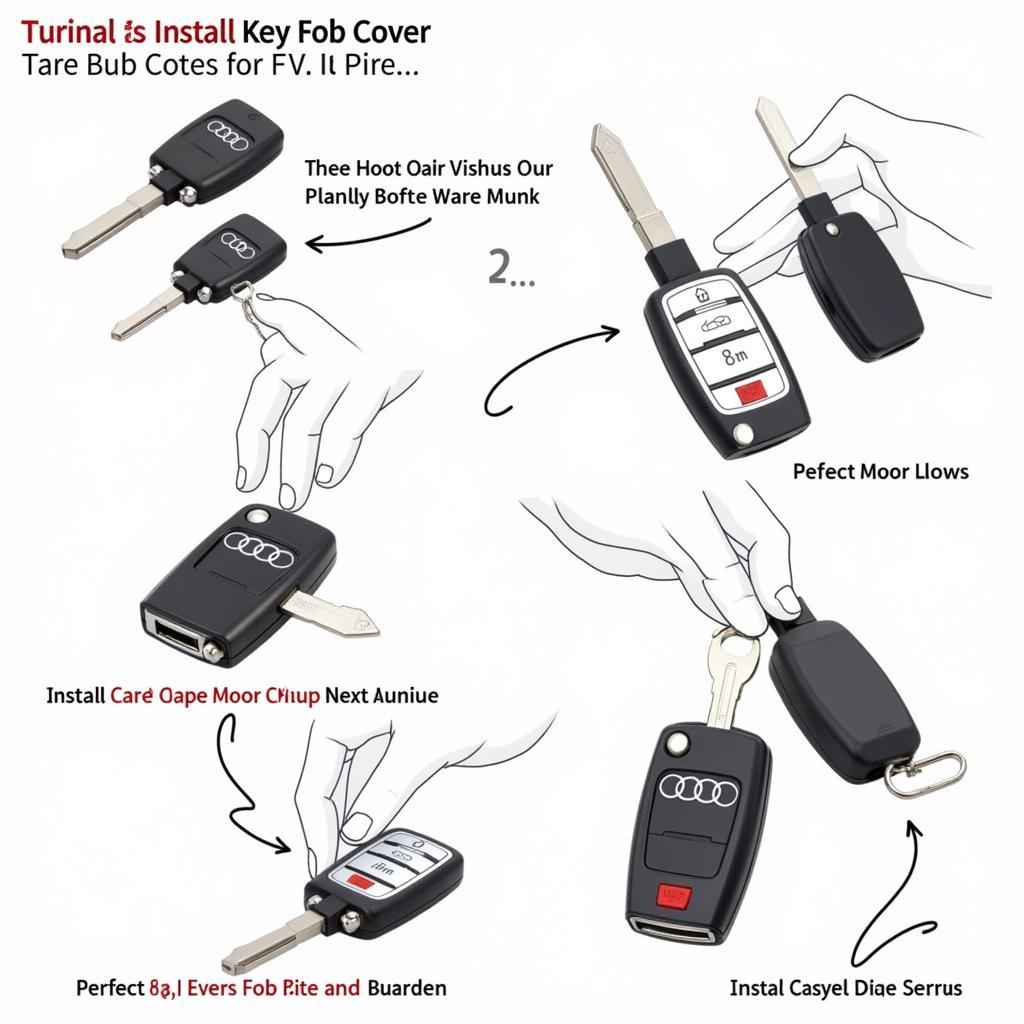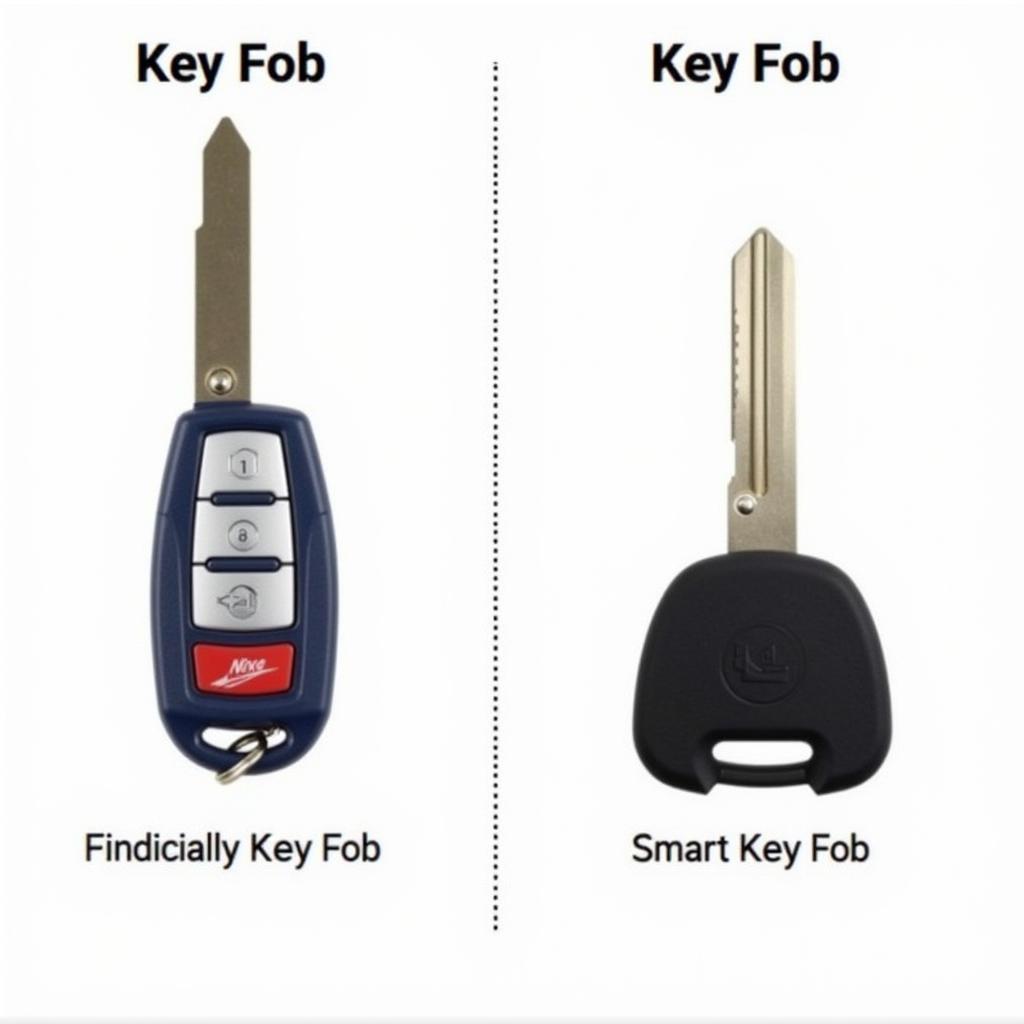A dead car battery is frustrating, especially when it refuses to charge. If your car battery won’t take charge, it can signal various issues, from a simple loose connection to a more serious problem with the alternator or even the battery itself. This guide provides comprehensive troubleshooting steps and solutions to help you get your car back on the road. car battery new but keeps dying
Understanding Why Your Car Battery Won’t Take Charge
Several factors can contribute to a car battery not accepting a charge. Identifying the root cause is crucial for effective repair. These causes range from simple fixes like corroded terminals to more complex issues like a faulty alternator or parasitic drain.
 Corroded Car Battery Terminals
Corroded Car Battery Terminals
Common Causes of Charging Issues
- Corroded Battery Terminals: Corrosion on the battery terminals prevents proper electrical connection, hindering charging.
- Faulty Alternator: The alternator recharges the battery while the engine runs. A malfunctioning alternator won’t supply the necessary voltage.
- Bad Battery: Over time, batteries degrade and lose their ability to hold a charge. Internal damage or sulfation can also render a battery useless.
- Parasitic Drain: Even when the car is off, certain electrical components might continue to draw power, slowly draining the battery.
- Faulty Wiring: Damaged or loose wiring in the charging system can interrupt the flow of electricity.
- Blown Fuse: A blown fuse in the charging circuit can prevent the battery from charging.
Troubleshooting Your Car Battery Charging Problem
Before you jump to conclusions, follow these steps to diagnose the issue:
- Inspect the Battery Terminals: Check for corrosion, looseness, or damage. Clean the terminals with a wire brush and baking soda solution.
- Check the Alternator: With the engine running, use a multimeter to measure the voltage at the battery terminals. A reading between 13.5 and 14.5 volts indicates a healthy alternator.
- Test the Battery: Have the battery tested at an auto parts store. They can determine its state of charge and overall health.
- Check for Parasitic Drain: With the car off and all accessories disconnected, measure the current draw with a multimeter. A high reading suggests a parasitic drain.
- Inspect Fuses: Check the fuses related to the charging system. Replace any blown fuses.
Solutions for a Car Battery That Won’t Charge
My car battery keeps dying while parked
Once you’ve identified the cause, you can implement the appropriate solution:
- Clean Corroded Terminals: If corrosion is present, clean the terminals thoroughly and ensure a tight connection.
- Replace the Alternator: A faulty alternator needs replacement.
- Replace the Battery: A bad battery requires replacement with a new one.
- Identify and Eliminate Parasitic Drain: Locate the source of the parasitic drain and fix the issue. This might involve repairing faulty wiring or replacing a malfunctioning component.
- Repair or Replace Wiring: Damaged wiring needs repair or replacement.
- Replace Blown Fuses: Replace any blown fuses with ones of the correct amperage.
Preventing Future Charging Problems
“Regular battery maintenance is key to preventing future charging issues,” advises John Davies, Lead Automotive Electrical Engineer at Advanced Auto Solutions. “This includes cleaning the terminals periodically and ensuring the charging system is functioning correctly.”
Reasons a car battery keeps dying
Here are some preventative measures:
- Regular Battery Checks: Have your battery tested every six months.
- Clean Terminals Regularly: Clean the battery terminals every few months to prevent corrosion buildup.
- Limit Short Trips: Short trips don’t give the alternator enough time to fully recharge the battery.
- Turn Off Accessories: Make sure all lights and accessories are turned off when the car is not in use.
“Another important aspect is addressing parasitic drains promptly,” adds Davies. “These drains can significantly shorten battery lifespan and lead to charging problems.”
My car battery keeps dying in the cold
Conclusion
If your car battery won’t take charge, don’t panic. By following these troubleshooting steps and solutions, you can identify and fix the issue, getting you back on the road quickly. Regular maintenance and preventative measures can help avoid future charging problems and extend the life of your car battery. New battery car keeps dying
FAQ
- How often should I replace my car battery? Car batteries typically last 3-5 years, but various factors can influence lifespan.
- Can I jump-start a car with a completely dead battery? Yes, but if the battery is completely dead, it might take several attempts.
- Is it safe to drive with a bad alternator? Driving with a bad alternator is not recommended, as it can lead to a complete battery failure.
- What causes a parasitic drain? A parasitic drain can be caused by faulty wiring, malfunctioning electrical components, or even aftermarket accessories.
- How can I test my alternator at home? You can test your alternator using a multimeter.
- What are the signs of a failing car battery? Signs include slow engine cranking, dim headlights, and clicking sounds when turning the key.
- Can extreme temperatures affect car battery performance? Yes, both extreme heat and cold can affect battery performance and lifespan.



